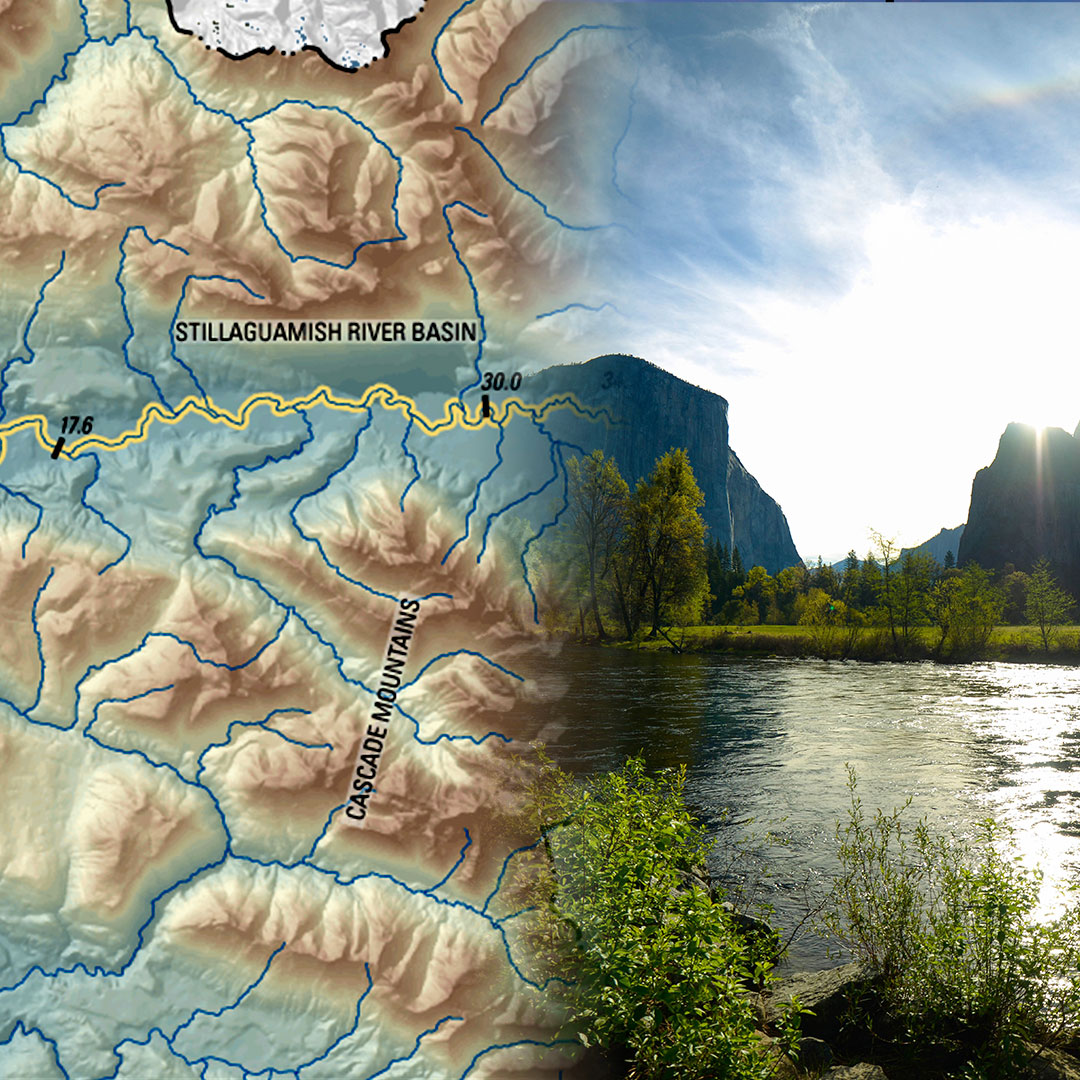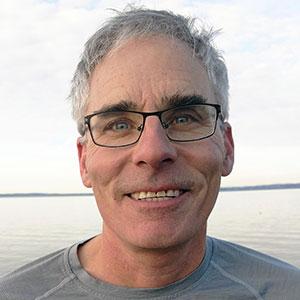Stillaguamish Watershed: Response to Projected Climate Change

WHEN
Thursday, October 28, 2021
4:30-5:30 p.m. PT
LOCATION
Online
Zoom
PRICE
Free
Check out this video to watch the Stillaguamish Watershed: Response to Projected Climate Change.
Huxley Speaker Series
Brought to you by Huxley College of the Environment and College of Science and Engineering in partnership with the WWU Alumni Association
The Stillaguamish Watershed is typical of many watersheds in the Puget Sound region—it has high relief that maintains a winter snowpack above about 1000 meters in elevation. Historically, accumulated snow in the watershed melts out by late spring or early summer, sustaining streamflows and serving as a cool-water buffer for salmon habitat. Modeling of projected warming climates in the Stillaguamish basin indicates that warmer winter temperatures will produce more rain than snow causing snowlines to retreat to higher elevations and an overall decline in basin winter snowpack. The transition to a rain-dominated basin results in a projected 25% increase in winter peak flows, increasing the risk to lowland infrastructure and salmon restoration efforts. A reduced snowpack also results in lower spring and summer streamflows and an increase in stream-water temperatures, which stresses salmon—further threatening their recovery as a species.
More information about the speaker series is available here.
We are excited that we will be live-streaming from a WWU classroom for the webinar for our off-campus audience. Due to the pandemic, only WWU students will be in-person for the presentation but we look forward to welcoming you all to class virtually.

Bob Mitchell
Speaker
Bob currently serves as the Digges Distinguished Professor of Engineering Geology in the Geology Department where he has been a faculty member since 1996. He teaches courses in engineering geology, surface-water hydrology, hydrogeology, ground-water contamination, and GIS. His actionable-science research interests include modeling the effects of climate change on mountain hydrology and hillslope processes including snowpack, glacier recession, streamflow, stream temperatures, and stream sediment. His research efforts have supported numerous MS graduate students and has been instrumental to management and policy decisions regarding water quantity and quality for regional tribes, regulatory agencies, and municipalities.
Questions and Accommodations

Stefan Freelan is the coordinator of the Huxley Speaker Series. Send email to stefan@wwu.edu or call (360) 650-2949 if you have any questions or comments.
There will be auto-captions available for this event. To request closed captions, please mark the request on the registration form. Advance notice of three days to one week is appreciated.